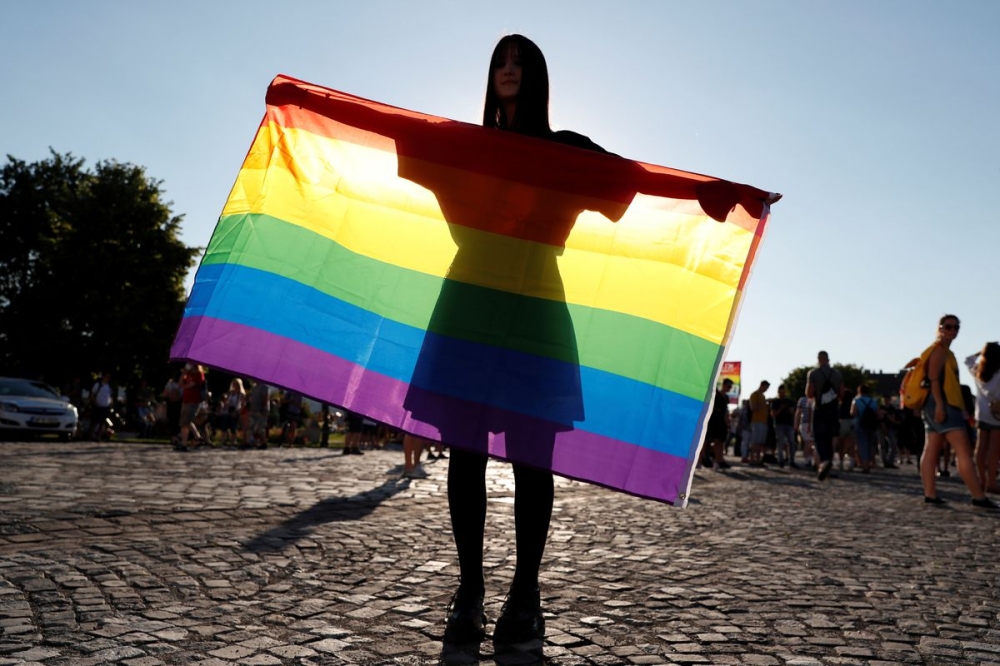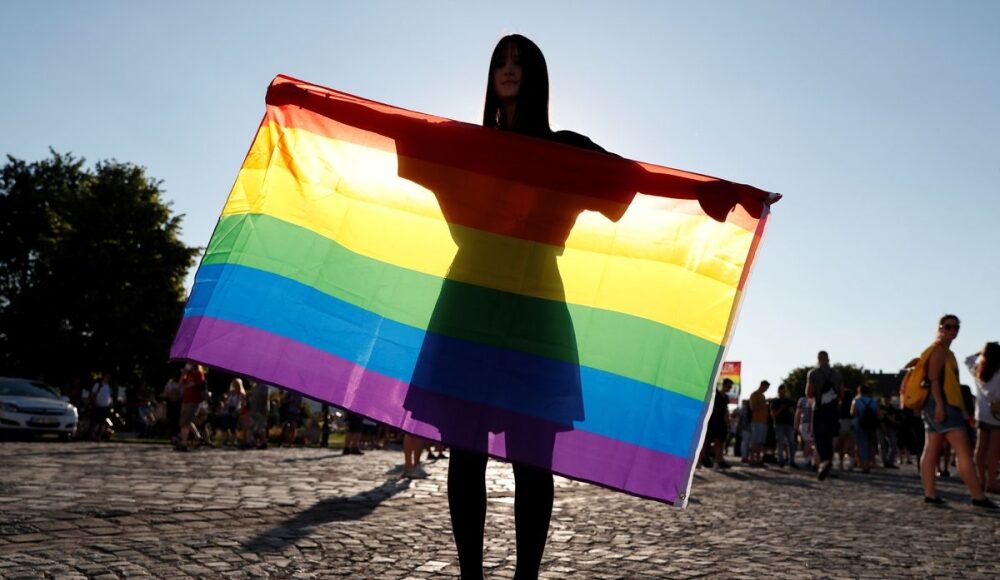MAY 14 — Justice for Sisters (JFS) and the following civil society organisations are deeply concerned by the anti-LGBT signboards in Terengganu. Equally alarming is the statement by the Terengganu State EXCO defending the state action as an effort to incite hatred towards homosexual behaviour (read LGBTQ people), which can be categorised as ‘hate speech’ under international human rights law.
Similarly, the state’s action can be classified as an advocacy of discrimination and hatred. Aside from this latest incident, Terengganu has a track record of state-sanctioned discrimination against LGBTQ people. In 2018, two queer women were caned in an open court for attempt of musahaqah. In 2022, amendments to the syariah criminal enactment introduced criminalisation of trans men and gender diverse people and acts preparatory to liwat (anal sex or sexual relations between men). JFS has been receiving reports of arrests and harassment of LGBTQ people through the state’s multiagency aurat operations, raids of private events, and even at LGBTQ people’s private homes.
The government is obliged by international human rights law to prohibit the advocacy of hatred against LGBTQ people that constitutes incitement to discrimination, hostility, or violence.

Incitement of hate towards homosexual behaviour = discrimination against LGBTQ people
In Malaysia, non-heterosexual sexual orientations and non-cisgender gender identities are described as “LGBT lifestyle” or “LGBT behaviour”. This is not only inaccurate, but it also has harmful effects. It is important to note that sexual orientation and gender identity are core parts of a person’s identity, similar to skin colour, indigenous status, disabilities, or neurodivergence.
When non-heterosexual sexual orientations and non-cisgender gender identities are seen as a behaviour, then there is an assumption that it can be corrected, moulded or changed. This is extremely evident in the case of Malaysia, where conversion practices or SOGIE change efforts, which are referred to as “rehabilitation” or “spiritual guidance programmes”, are promoted by the Federal and state governments.
There is an urgent need to recognise and accept the fact that sexual orientations and gender identities are diverse. This human diversity is a normal occurrence in life. The lack of recognition of this fact has a harmful impact on LGBT people’s right to live safely with dignity and their ability to exercise their rights, including freedom of religion and expression.
The Terengganu state government continues to violate LGBTQ people’s constitutional rights
The state actions are blatantly unconstitutional, as they violate LGBTQ people’s right to live with dignity and as equal human beings without discrimination and state intrusion into their lives. All of these rights are safeguarded under Articles 5, 8 and 10 of the Federal Constitution.
By placing the signboards in strategic locations such as universities to target young people, the state effectively restricts LGBTQ people’s equal, safe and dignified access to education, safeguarded under Article 12 of the Constitution. A Suhakam’s study found hate speech, name-calling, and sexual violence against trans and intersex people were rampant in educational institutions across primary, secondary and tertiary education.
All of these further make the state of Terengganu unsafe for LGBTQ people, depriving them of not only safety and dignity, but also freedom of movement stipulated under Article 9 of the Constitution.
A Justice for Sisters et al upcoming nationwide study, which includes 10 LGBTQ people (5 gay men, 5 trans women) in Terengganu, found that all 10 of them experienced discrimination and violence online and offline because of their SOGIE, ranging from employment, housing, education and other forms of discrimination by various actors. 70 per cent were subjected to multiple SOGIE change efforts or conversion practices by family members, state and other actors. Meanwhile, two of six people who pursued tertiary education or equivalent reported sexual and verbal violence in tertiary education. Of the 10, only three people shared that they have reported cases of discrimination. The rest did not.
Against this restrictive backdrop, at least two people talked about self-censorship as a coping strategy — “not do anything that could trigger possible hate from the public” and “follow whatever rules are set at the workplace or other settings”. Five others opted to isolate themselves or live on their own to avoid discrimination and violence. Of the 10 people, half wanted to migrate. While one of them had to relocate within the state of Terengganu as a result of discrimination.
The cost of discrimination on their mental health was apparent, with 60 per cent noting that they have experienced increased mental health burden due to discrimination, and 40 per cent sharing that they have experienced suicidal ideation. One person shared that their suicidal attempt happened after they were outed and shamed because of their sexual orientation.
Many also spoke of the causal link between state discrimination and societal discrimination. “It is challenging safety for the community, employment opportunities are inconsistent — some accept, some don’t accept at all. The laws put a lot of pressure on us, and they punish us. In terms of laws, there must be some consideration [for LGBT people] and not penalise us, open employment opportunities and welfare support for the community”. A majority of them stressed the urgent need to raise public awareness to make both the state of Terengganu and Malaysia “less hateful and more accepting”.
Weaponisation of religion against LGBTQ people
We are also deeply concerned about the state’s weaponisation of religion to justify its advocacy of discriminatory hatred, which explicitly includes incitement to hostility and discrimination against LGBTQ people.
UN experts have stressed that religion and public morality are often weaponised against LGBTI people, women and minorities. In a 2020 report, the Special Rapporteur on freedom of religion or belief “rejecte(d) any claim that religious beliefs can be invoked as a legitimate ‘justification’ for violence or discrimination against women and girls or against people on the basis of their sexual orientation or gender identity.”
The Independent Expert on SOGI further stressed, “religion or belief systems are often deliberately placed in antagonistic positions against the human rights of LGBT persons in social and political discourse, feeding the contention that there is an inherent conflict between them.” It is important to recognise the growing shift from patriarchal interpretations of theology and the inclusion of LGBTIQ people across religious institutions globally.
The Beirut Declaration on “Faith for Rights” further stresses that “religious or belief convictions are one of the fundamental sources of protection for human dignity and freedoms of all individuals and communities with no distinction on any ground whatsoever.”
We call on Suhakam and the Minister of Higher Education to hold a dialogue with the Kuala Terengganu City Council and state EXCO to remove the signboards, given the discriminatory intent, nature and impact of the state’s action.
Endorsed by:
- Justice for Sisters
- Women’s Aid Organisation (WAO)
- PLUHO, People Like Us Hang Out!
- All Women’s Action Society (AWAM)
- SEED Malaysia
- Association of Women Lawyers (AWL)
- KL Queer Space
- AIDA (Autism Inclusiveness Direct Action Group)
- Family Frontiers
- ILGA Asia
- Amnesty International Malaysia (AIM)
- Centre for Independent Journalism (CIJ)
* This is the personal opinion of the writer or publication and does not necessarily represent the views of Malay Mail.





